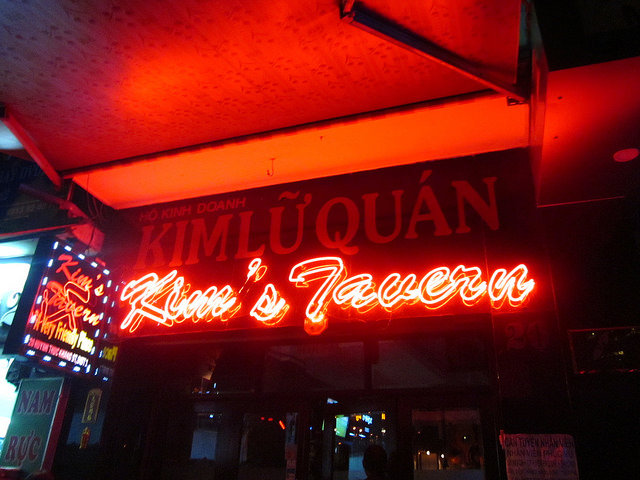
Men display their success by spending on women: not a new idea. (Cue “Another Saturday Night.”) What’s new is which men in the world have the dough to get the date, argues Kimberly Hoang in a piece published recently in Social Problems. Studying hostess bars in Vietnam, Hoang illustrates how Asian economies’ strength and Western markets’ financial dive after the 2008 recession have affected global gender and racial hierarchies. Before this, non-Western men were disparaged as unable to provide for women, whether as lovers or as businessmen. But as Hoang observed, newly wealthy Asian businessmen and Asians working overseas upended these tropes through their consumption of liquor and ladies at hostess bars. These men demonstrated their success as many in the West lost jobs and fortunes. These Asian men’s ability to flash a lot of cash—through bottle service and lavish, visible tipping of hostesses—signals a challenge to a global hierarchy of men that imagines white Western businessmen at the top.
Hoang conducted 22 months of ethnographic fieldwork at four different hostess bars, working before and after the 2008 financial crisis. This allowed her to examine shifts in the number of bars catering to different clientele, including the emergence of spots serving newly wealthy Vietnamese businessmen. Men’s use of women in these bars is more than simply symbolic. Hoang found that the sex industry is a central space in which Vietnamese businessmen demonstrate their power to other Asian businessmen involved in foreign direct investment. Spending time together at such bars is necessary to “facilitate relations of trust in a country where investors do not have faith in legal contracts,” Hoang writes.
For Western men, hostess bars are where they seek Vietnamese women as sexual partners, girlfriends, or wives, thus asserting their masculinity, especially after the financial crisis. They capitalize on the lower cost of living in Vietnam and hew to an outdated vision of Western superiority and power over “Third World women.” This vision is out of touch with the growth of Vietnam’s economy and women’s own agency. For example, Hoang highlights how some women in these bars take control by bolstering Western men’s sense of national superiority, telling them tall tales about their impoverished village roots to spur a sense of superiority and charity that compels the men to part with large sums of money.
Men position themselves in a global hierarchy through drinking, tipping, and claiming women in these hostess bars. According to Hoang, these acts—usually understood as off-the-clock and inconsequential—are significantly related to financial markets and business deals. Hostess bars help signal rising and falling fortunes for individuals, countries, and regions of the world.

Comments